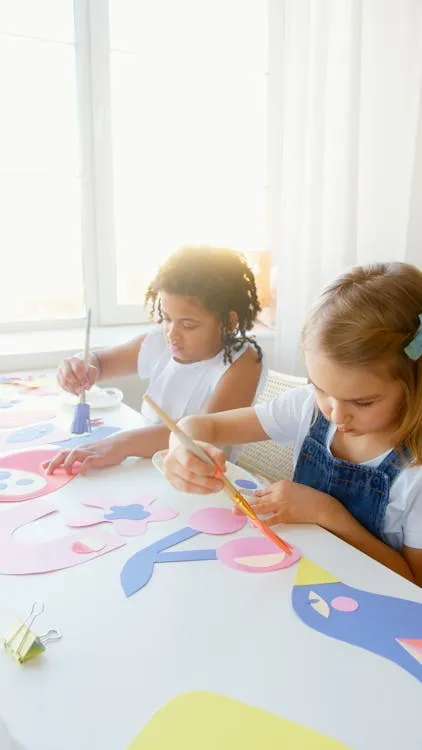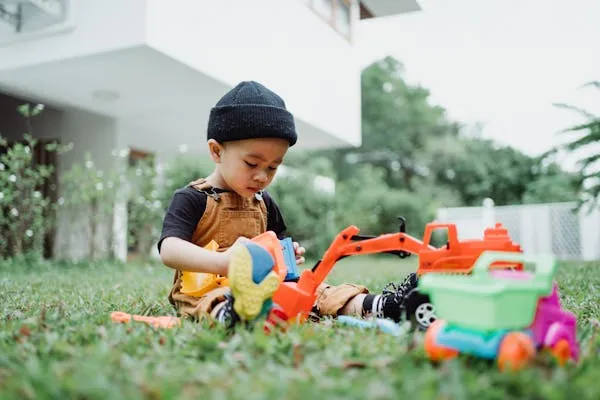13 Expert Tips for Raising Confident and Independent Children
Providing confidence and independence can also nourish a child.
- Cyra Sanchez
- 6 min read

When kids solve problems on their own, they develop resiliency and self-confidence. Promoting positive self-talk and celebrating successes lead to a healthy self-esteem. Well, your support is there without micromanaging. Your support helps them grow on their own and make up their mind.
1. Celebrate Small Victories with Enthusiasm
 Omar Ramadan on Pexels
Omar Ramadan on Pexels
Parts of parenthood are like cheering for some small victories in life. This is about acknowledging and celebrating your child’s small wins, such as tying their shoes or completing a challenging puzzle. That’s good because it gives them a sense of accomplishment and makes them want to keep at it. By lauding effort instead of outcomes, they recognize the merits of perseverance. The best part? They rely on your excitement to give them confidence and go for more.
2. Foster Decision-Making Skills
 Vanessa Loring on Pexels
Vanessa Loring on Pexels
Giving some control to your child may feel frightening as well as liberating. When children choose, for example, what they wear or what they do on the weekend, they are exercising their decision-making skills. It’s an approach that works because it gives them a sense that their opinions count and their choices matter. Give them enough pointers, but allow them to take control within safe limits. Here’s the beauty of it all: There are so many opportunities for them to evolve into problem-solvers with a firm sense of independence.
3. Encourage Mistakes as Learning Opportunities
 Tima Miroshnichenko on Pexels
Tima Miroshnichenko on Pexels
Mistakes are just stepping stones disguised in front of you. This tip is about reframing failures as learning experiences instead of roadblocks. It’s effective because it encourages kids to approach challenges with resilience and curiosity rather than fear. Sharing what they learned from their missteps will help them develop their mindset. Best of all, it gives them permission to take risks and be creative with confidence.
4. Model Confidence Through Your Actions
 cottonbro studio on Pexels
cottonbro studio on Pexels
Kids are sponges, absorbing copious amounts of what they see you do, so show confidence in front of them. This might mean showing up confidently with your choices and struggles, even when they’re all unknown. It’s powerful because children tend to follow their parents’ lead, and watching you deal with situations smoothly strengthens good habits. Talk yourself through your thought process out loud to make self-confidence less opaque. The standout feature? Your confidence is a skill they can develop as well.
5. Create a Safe Space for Expression
 Artem Podrez on Pexels
Artem Podrez on Pexels
A child’s feelings need a soft place to land; that’s where you come in. This tip promotes open communication and encourages your child to express their feelings without fear of being judged. It’s good because they feel heard, and those feelings build self-esteem and emotional intelligence. Prompt them with open-ended questions and active listening. It’s not what you say or do; it’s the feeling of being appreciated and understood, gifts worth their weight in gold for their self-esteem.
6. Set Realistic and Achievable Goals
 MART PRODUCTION on Pexels
MART PRODUCTION on Pexels
Life isn’t about reaching the summit immediately. Sometimes, it’s just about climbing low hills first. Encourage your child to set achievable goals, such as improving reading skills or learning to ride a bike, to build confidence slowly. This makes sense because attainable goals give you a constant flow of motivation and are measurable progress. Dividing tasks into small manageable steps, celebrating each success, and seeing the improvement in their confidence can be extraordinary. The emphasis here is not on them achieving perfection but rather on the joy of progress.
7. Teach Responsibility with Fun Tasks
 Antoni Shkraba on Pexels
Antoni Shkraba on Pexels
Who would have thought that chores could make a person? Give your child responsibilities that are appropriate for their age, such as setting the table or feeding the family pet. It can build a sense of independence and pride. It works because it teaches accountability and makes them feel like a valued contributor to the family. Keep it interesting from a game-like mentality to make it fun in any way possible. The best part? They come to appreciate their role, and you have an extra pair of hands around the house.
8. Encourage Curiosity and Exploration
 Andrea Piacquadio on Pexels
Andrea Piacquadio on Pexels
Each question your child asks is a spark looking for the tinder of their inner explorer. This means feeding their curiosity: asking questions, attempting new activities, and exploring their surroundings. Asking questions is valuable because it encourages creative, life-long learners. Give them tools like books, art supplies, or museum trips that spark their discovery. What’s more rewarding is seeing them discover a passion for adventure and learning on their own terms.
9. Practice Positive Affirmations Daily
 Budgeron Bach on Pexels
Budgeron Bach on Pexels
They say words have power, particularly those we tell ourselves. Encourage your child to repeat daily affirmations, such as “I am capable” or “I am loved,” to help build a healthy self-image. It works because these mantras gradually build confidence and ease self-doubt. See if you can repeat affirmations together, maybe within your morning routine, to make it something you do together. The best feature? You’re giving them a tool for lifelong self-affirmation.
10. Balance Support and Independence
 Ron Lach on Pexels
Ron Lach on Pexels
Parenting walks the line between having guidance and letting go. This tip is about being available when your child needs someone to help but also giving them space to figure things out independently. It works because it builds trust and shows them they can face challenges. Be there to catch them if they fall, but don’t hover over them; offer encouragement. The beauty of it here is helping them feel that safety while allowing them to learn how to soar.
11. Cultivate Empathy Through Acts of Kindness
 Gustavo Fring on Pexels
Gustavo Fring on Pexels
Self-esteem doesn’t stem solely from within. It flourishes through social connection. Encourage your child to be kind by helping out a friend or volunteering. This promotes empathy and self-esteem. It works because treating others kindly increases their sense of belongingness and purpose. Help them recognize the treatment used by describing everything they did right and how it spreads positive influence. The highlight? They become more self-assured while brightening the world.
12. Limit Comparisons to Others
 olia danilevich on Pexels
olia danilevich on Pexels
Nothing else can do more damage to confidence than the comparison trap. This is about teaching your child to look within themselves for what makes them special, not to measure themselves against other children. It matters because it slows competition and increases self-improvement. Focus on their unique talents and reassure them that every path looks different. The best part? They’ll discover how to value themselves without needing affirmation from others.
13. Prioritize Playtime and Free Exploration
 Ketut Subiyanto on Pexels
Ketut Subiyanto on Pexels
Play is a child’s secret weapon for learning life skills. Having unstructured playtime naturally allows children to develop creativity, problem-solving, and social skills. It works because it allows them to follow their interests and abilities at their own speed. Provide a wide range of play opportunities, from building blocks and crafts to a chance to go outside. The standout feature? Playtime not only makes them happier, but it also makes them more confident and independent.